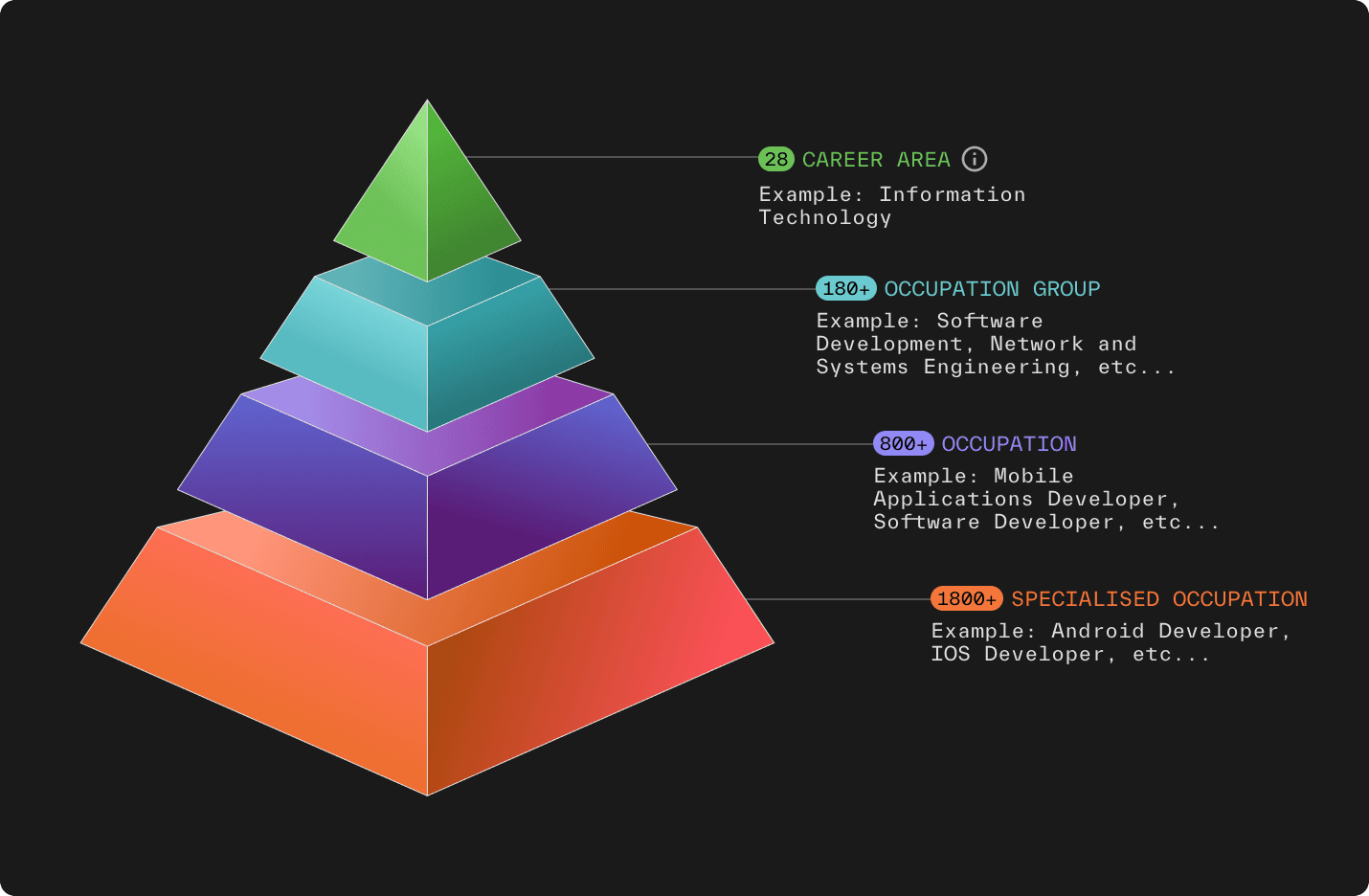Lightcast Occupations Taxonomy
Occupation
Related Occupations
(How does Lightcast define an occupation?)Browse the most common related occupations, based on the last 5 months of job postings data
A Registered Nurse provides medical care and treatment, educates patients about their conditions, and provides emotional support to patients and families. Works in hospitals, schools, clinics or community health centers. Works under the supervision of a physician or other specialist, and serves as the primary point of care for patients in a hospital setting. May specialize in emergency room work, or treatment for a particular condition, or specialize in working with infants, the elderly or other patient groups. May work as an advanced practice specialists and prescribe medications in addition to offering specialty care.
A Licensed Practical Nurse or Vocational Nurse provides basic medical care under the direction of registered nurses and other healthcare specialists. The tasks that they are permitted to perform vary by state, but usually include changing bandages, checking blood pressure, or helping feed patients. May work in hospitals, nursing homes, or other healthcare facilities.
A Physical Therapist helps patients with physically disabling conditions or injuries to improve their ability to move and manage their pain. Uses techniques including targeted exercises and massage therapy. Works in conjunction with other healthcare providers to provide rehabilitation to patients after an injury or illness. May specialize in treating certain types of injuries or patients.
A Medical Assistant assists physicians and other medical specialists with routine administrative or clinical tasks. Organizes patient records, schedules appointments, and prepares medical equipment. May specialize in administrative or clinical work, or specialize in a particular area of medicine, i.e. assisting in the office of an ophthalmologist (eye specialist). Works in medical offices.
A Speech Language Pathologist diagnoses and treats speech, language, and swallowing disorders in patients with a variety of conditions. Helps patients improve their ability to make sounds or use language, or develop non-spoken means of communication. May specialize in working with patients of a certain age group, or treat speech problems resulting from a condition such as a stroke or cleft palate. Works in schools, hospitals and other healthcare facilities and works closely with physicians, psychologists, social workers, and other therapists.

As we move up in the hierarchy, subsections are exclusive to their associated category. In other words, each specialized occupation is unique to its occupation, each occupation is unique to its occupation group, and each occupation group is unique to its career area. This prevents duplicate or overlapping data when analyzing more than one occupation.
The LOT uses a proprietary classification system of four different levels: career areas, occupation groups, occupations, and specialized occupations.
